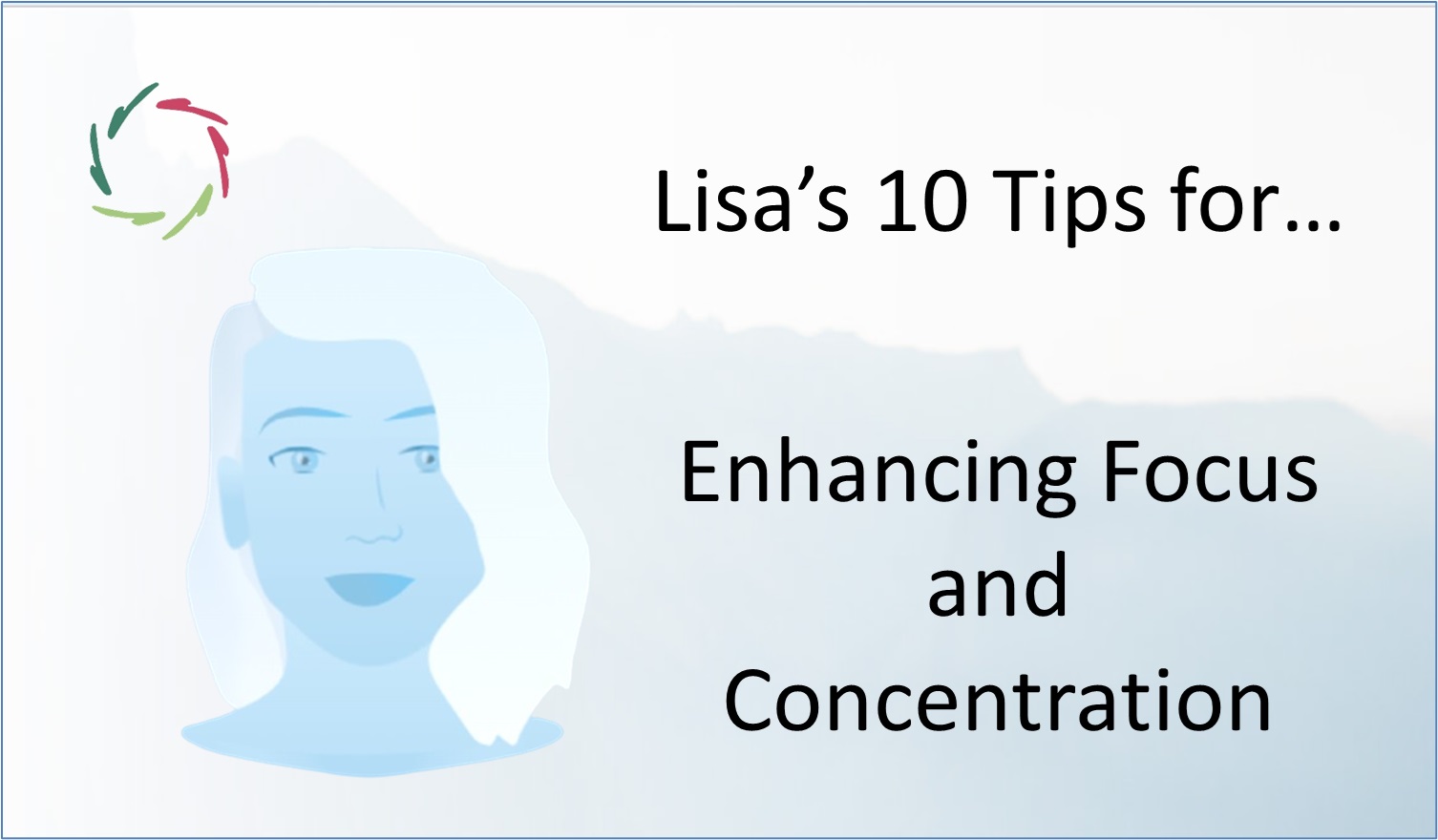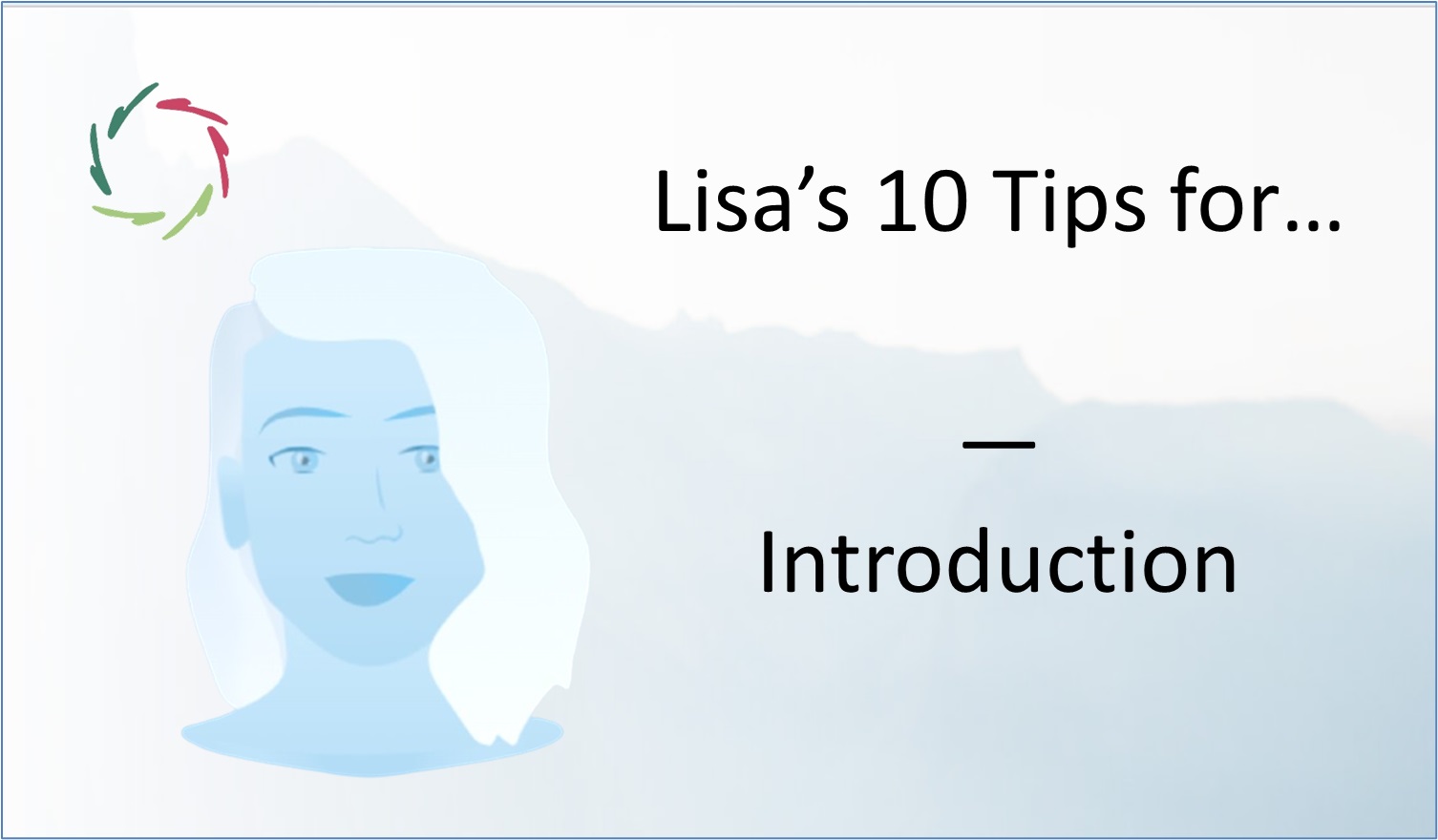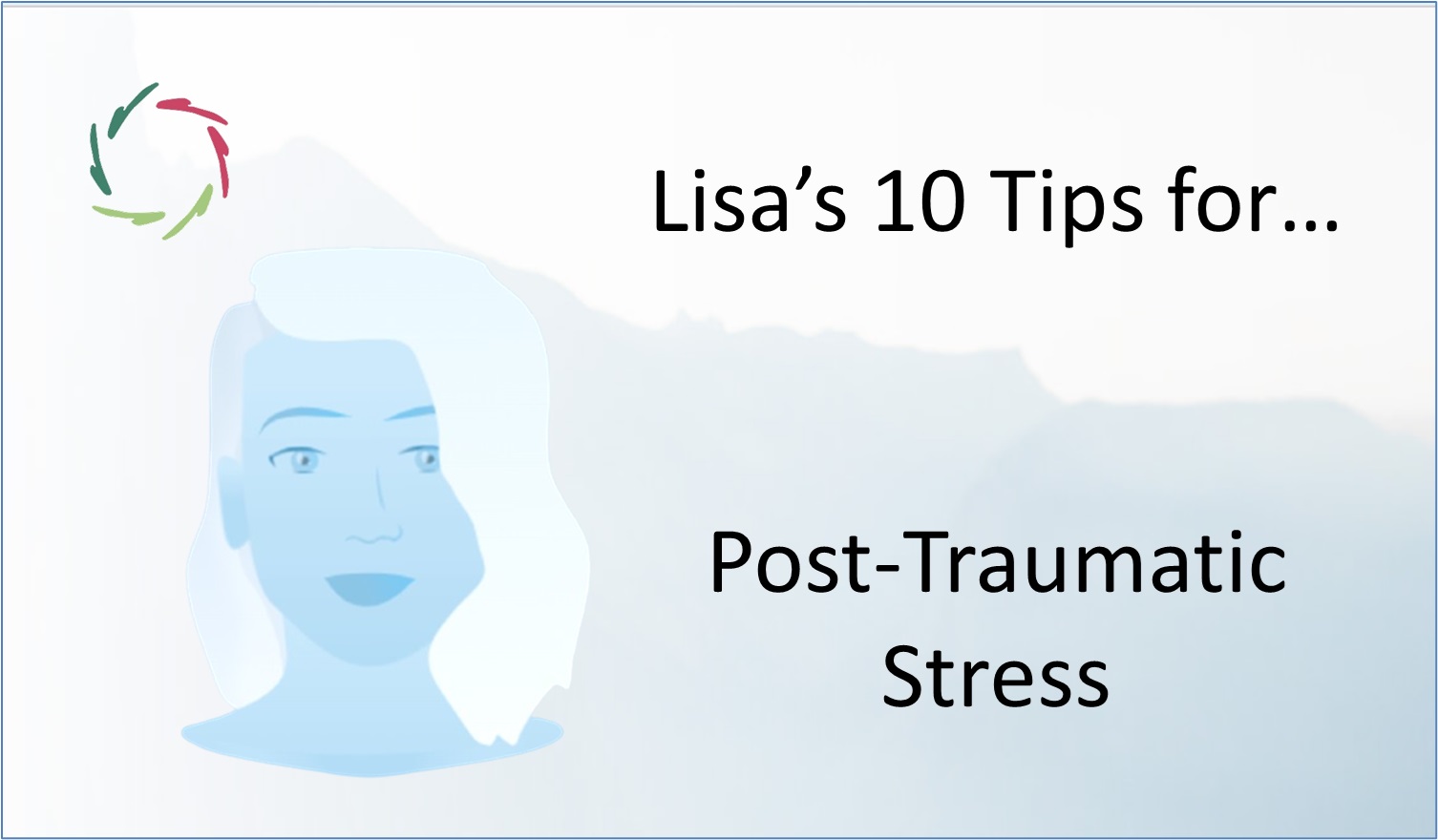Lisa’s 10 Tips for… Enhancing Focus and Concentration

Here are ten original tips for enhancing focus and concentration that are specifically based on Lisa’s knowledge and deeper insights ― avoiding the common tips that are frequently offered.
These tips, provided by A.I. coach-bot Lisa (human ratified, hardly or unedited), Compassionately align with both rationality and depth as well as with a synthesis of fostering growth and relief of suffering ― forming a deep approach that aims for fundamental transformation rather than superficial fixes. For more about their use, see Lisa’s 10 Tips for… An Introduction. Note that this is support, not therapy. If needed, please seek out proper human therapy.
Start with mindful breathing
When your mind feels scattered or overwhelmed, a simple but powerful technique is mindful breathing. Close your eyes and focus entirely on the sensation of your breath entering and leaving your body. Feel the rise and fall of your chest, the coolness of the air as it enters your nostrils, and the warmth as you exhale. This mindful breathing practice calms the mind and brings you back to the present moment. It clears mental clutter and allows you to reset, preparing your brain to focus with greater clarity. Even just a minute of mindful breathing can refresh your concentration.
Break tasks into small, manageable steps
Large tasks often feel overwhelming and make it hard to focus. The mind can easily drift when it doesn’t know where to start. Break the task down into small, bite-sized steps. For example, instead of thinking, “I need to finish this entire project,” focus on one tiny part—like drafting the introduction or organizing your notes. Completing these smaller tasks gives you a sense of accomplishment and helps maintain focus by creating manageable goals. As you check off each small step, your brain stays engaged and motivated, without feeling burdened by the bigger picture.
Set clear, timed work intervals
The Pomodoro technique is a great way to structure your time and boost concentration. Set a timer for 25–30 minutes where you focus entirely on one task, followed by a 5-minute break. These short, timed intervals help you stay focused by giving your brain a specific period to concentrate, knowing there’s a break coming soon. This balance of focus and rest prevents mental fatigue and keeps your energy levels up throughout the day. Over time, you can gradually increase your work intervals as your focus improves.
Create a distraction-free environment
Your environment plays a significant role in your ability to focus. Start by removing distractions—turn off phone notifications, close unnecessary tabs on your computer, and tidy up your workspace. A clean, quiet environment helps your brain stay focused on the task at hand. If possible, designate a specific space for work or study, as this trains your brain to associate that space with focused activity. By minimizing external distractions, you reduce the cognitive load on your brain, making it easier to concentrate deeply on your work.
Align your tasks with your energy levels
Everyone has natural peaks and dips in energy throughout the day. Some people are most focused in the morning, while others hit their stride in the afternoon. Pay attention to your own rhythms and schedule your most mentally demanding tasks during your peak energy periods. When you align your work with your natural energy flow, you use your focus more efficiently, allowing for deeper concentration during your prime hours. Save simpler, less demanding tasks for when your energy dips, ensuring that you’re not forcing focus at the wrong times.
Practice single-tasking
Multitasking divides your attention and drains your cognitive resources. To improve focus, commit to single-tasking—devote your full attention to one task at a time. When your mind is fully engaged in one activity, your ability to concentrate deepens, and the quality of your work improves. If distractions arise, gently guide your attention back to the task at hand. Over time, single-tasking strengthens your brain’s ability to focus and reduces the habit of jumping between tasks, leading to a more productive and focused workflow.
Incorporate short movement breaks
Physical movement is essential for maintaining focus, especially during long periods of mental work. Incorporate short movement breaks every hour—stand up, stretch, or take a brief walk. Movement increases blood flow, which helps refresh your mind and body. These breaks act as mental resets, allowing your brain to recharge and return to the task with renewed focus. Movement also helps release any tension that builds up from sitting for long periods, keeping your body and mind in balance.
Engage in focused meditation
Meditation trains your brain to concentrate for longer periods. Focused attention meditation involves concentrating on a single point, such as your breath, a candle flame, or a mantra. Each time your mind wanders, gently bring it back to the object of focus. This practice strengthens the brain’s attention muscles, making it easier to maintain focus in everyday tasks. Over time, meditation improves your brain’s ability to filter out distractions, allowing you to stay present and engaged for longer stretches of time.
Nourish your brain with proper nutrition
Your brain requires the right nutrients to function optimally. Foods rich in omega-3 fatty acids (like fish and flaxseeds), antioxidants (like berries and leafy greens), and vitamins (like those found in nuts and seeds) support cognitive health. Staying hydrated is also crucial for maintaining concentration, as dehydration can lead to mental fatigue. Make sure your diet includes these brain-boosting foods to enhance focus and keep your mind sharp throughout the day. Proper nutrition helps sustain concentration over longer periods, giving your brain the fuel it needs.
Trust in gradual improvement
Enhancing focus is a skill that develops over time, and it’s important to be patient with yourself during the process. Don’t expect to achieve perfect concentration immediately. Instead, celebrate small improvements and build on them. Each time you practice mindfulness, single-tasking, or meditation, you’re strengthening your ability to focus. Trust that with consistent effort, your concentration will improve gradually. By focusing on progress rather than perfection, you reduce the pressure on yourself, making the journey toward better focus more enjoyable.
―
These tips provide practical, actionable steps to enhance focus and concentration while integrating deeper strategies like mindfulness, body awareness, and mental discipline. The goal is to create a sustainable approach to focus, balancing productivity with mental and physical well-being. I hope you find these tips helpful!

.
.
.


